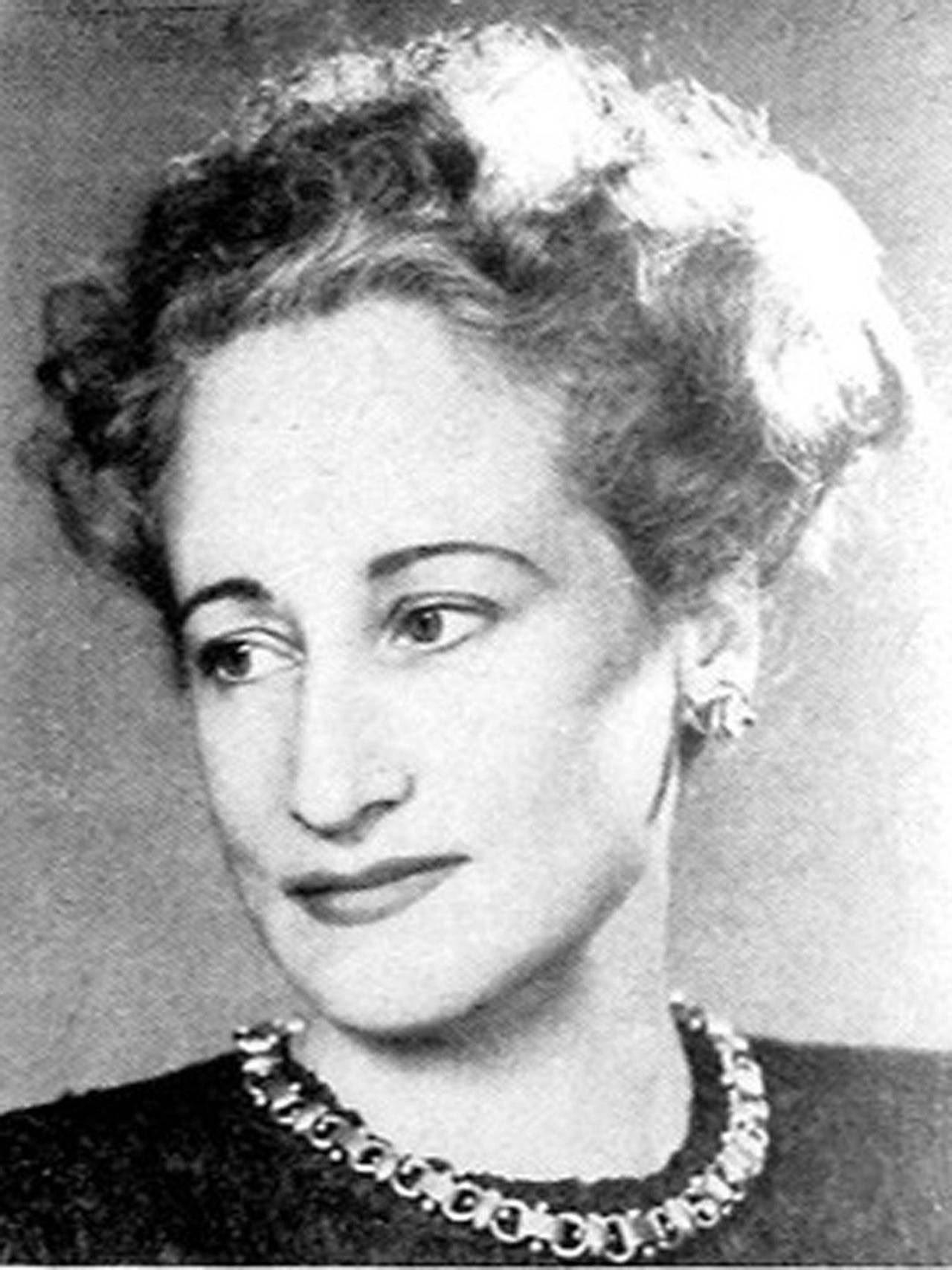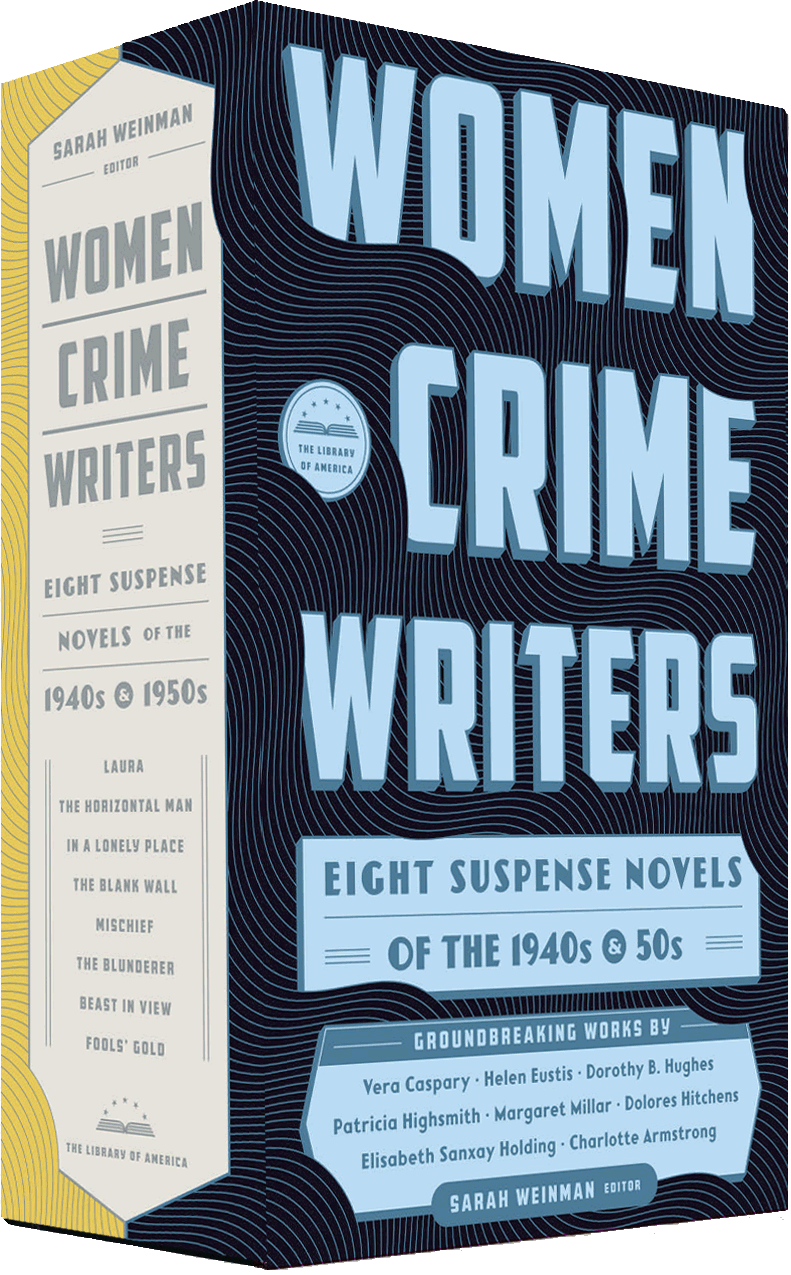Born Vera Louise Caspary on November 13, 1899, in Chicago, Illinois, the youngest child of Paul Caspary, a buyer for a department store, and Julia Cohen Caspary. Caspary’s birth was a surprise to the family, as her mother, over forty with three grown children, had hidden the pregnancy.
She graduated high school in 1917 and enrolled in a six-month business college course, after which she worked as a stenographer and at other office jobs, and as an advertising copywriter. Created the “Sergei Marinoff School of Classic Dancing,” a mail order dance course, and wrote articles for publications such as Finger Print Magazine and the New York–based Dance Lovers Magazine.
Turned down a raise from fifty to seventy-five dollars a week to work on her first novel in 1922. Her father died two years later, by which time Caspary was fully supporting her mother with her writing. Moved to Greenwich Village in New York as Dance Lovers Magazine’s new editor; eventually left to finish her first novel, Ladies & Gents (1929).
Published novel The White Girl (1929) about a black woman who passes for white. Novel Music in the Street (1930), set in a working girl’s home, inspired by Caspary living under an assumed name at a similar home. Moved back to Chicago and co-wrote the play Blind Mice (1931) with Winifred Lenihan, which became the basis for the film Working Girls. Moved back to New York and published novel Working Girls (1932), a roman à clef about her own family.
Nearly broke, Caspary wrote a forty-page original story for Paramount for $2000, which allowed her to move to Hollywood for the first time. Joined the Communist Party as “Lucy Sheridan” but later claimed she never fully believed in the cause and confined activities to fund-raising and hosting meetings. Visited Russia in April 1939 to “see how people lived” and (until blocked by paperwork delays) nearly married an Austrian Jew to get him to the United States.
Back in America, Caspary attempted to resign from the Communist Party, agreed to “temporary leave of absence” and returned to Hollywood. Wrote Laura in 1941, finishing it in October. The story was serialized in Collier’s over seven issues, November–December 1942, and published by Houghton Mifflin in 1943. Wrote dramatization of Laura in 1942 with George Sklar, eventually mounted in London and in New York (the latter production starring Miriam Hopkins) while waiting for meaningful work from Office of War Information. Tried to join Army but was turned down.
Met future husband, the Austrian film producer Isadore “Igee” Goldsmith, but his British citizenship meant he had to return to England and they were separated for thirteen months. Sold film rights to Laura to Twentieth Century-Fox; it was filmed in 1944, with Otto Preminger as director and a cast including Gene Tierney, Dana Andrews, and Clifton Webb. Bedelia (1945) first published as a serial by Good Housekeeping and in book form by Houghton Mifflin. Devised scheme to see Igee in England by cabling him that he could have the film rights to Bedelia for a British production, if she could be brought over to write the screenplay. Made deal with British Ministry of Information to write articles about wartime England for American newspapers and magazines. Arrived in England in January 1945, but left London once the war ended.
In Hollywood, Caspary adapted John Kempner’s Letters to Five Wives, eventually filmed by Joseph L. Mankiewicz as A Letter to Three Wives (1949). Published novel Stranger Than Truth (1946) and novella The Murder in the Stork Club (1946). Married Goldsmith in 1948. Formed short-lived Gloria Films production company, eventually tied up in United Artists bankruptcy in 1950. Published novel The Weeping and the Laughter (1950). Learning she had been added to “gray list” for Communist Party links, left country to avoid naming names. Shuttled between Hollywood and Europe until HUAC lost interest, and screenwriting jobs returned, starting with Les Girls (1957). Published novels Thelma (1952), False Face (1954), The Husband (1957), Evvie (1960), loosely based on Caspary’s 1920s career girl days, and Bachelor in Paradise (1961), based on a film treatment.
Goldsmith died of cancer in Vermont in 1964. Caspary returned to New York and published novels A Chosen Sparrow (1964), The Man Who Loved His Wife (1966), The Rosecrest Cell (1967), Final Portrait (1971), Ruth (1972), The Dreamers (1975), Elizabeth X (1978), as well as her autobiography, The Secrets of Grown-Ups (1979). She died of a stroke at St. Vincent’s Hospital in New York City on June 13, 1987.
Books by Vera Caspary
Ladies & Gents (1929)
The White Girl (1929)
Music in the Street (1930)
Working Girls (1932)
Laura (1943)
Bedelia (1945)
Stranger Than Truth (1946)
The Murder in the Stork Club (1946)
The Weeping and the Laughter (1950)
Thelma (1952)
False Face (1954)
The Husband (1957)
Evvie (1960)
Bachelor in Paradise (1961)
A Chosen Sparrow (1964)
The Man Who Loved His Wife (1966)
The Rosecrest Cell (1967)
Final Portrait (1971)
Ruth (1972)
The Dreamers (1975)
Elizabeth X (1978)
The Secrets of Grown-Ups (1979)



 Sarah Weinman is widely recognized as a leading authority on crime fiction. She is the editor of Troubled Daughters, Twisted Wives: Stories from the Trailblazers of Domestic Suspense, which the Los Angeles Review of Books called “simply one of the most significant anthologies of crime fiction, ever.” She is the news editor for Publishers Marketplace, and her work has appeared in The New York Times, The Wall Street Journal, the National Post, and The Washington Post, among other publications.
Sarah Weinman is widely recognized as a leading authority on crime fiction. She is the editor of Troubled Daughters, Twisted Wives: Stories from the Trailblazers of Domestic Suspense, which the Los Angeles Review of Books called “simply one of the most significant anthologies of crime fiction, ever.” She is the news editor for Publishers Marketplace, and her work has appeared in The New York Times, The Wall Street Journal, the National Post, and The Washington Post, among other publications.